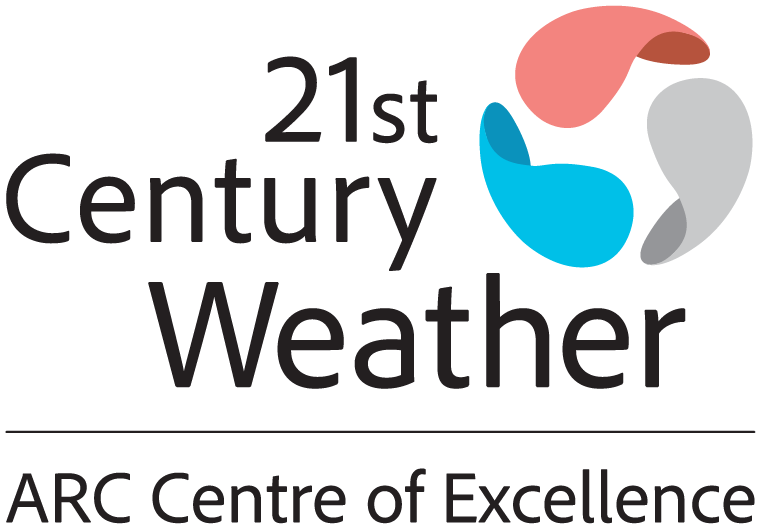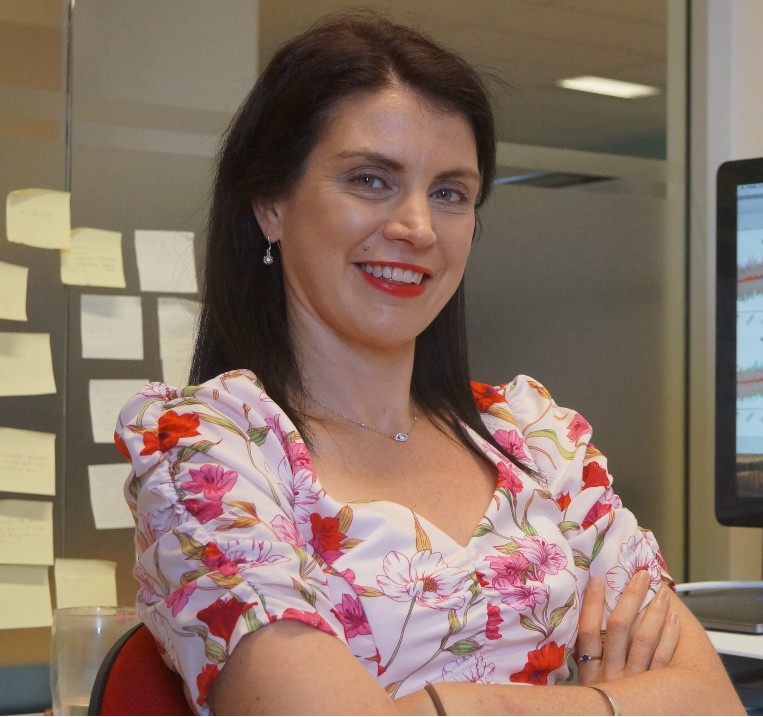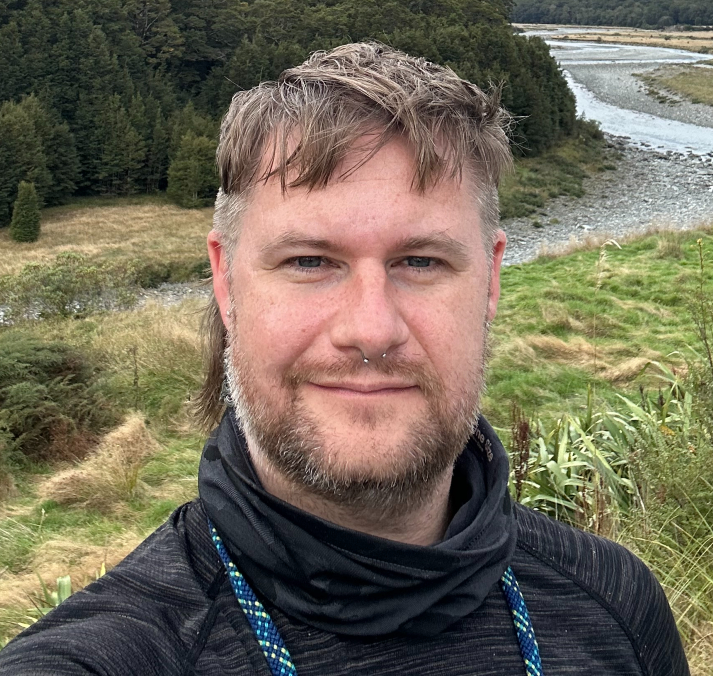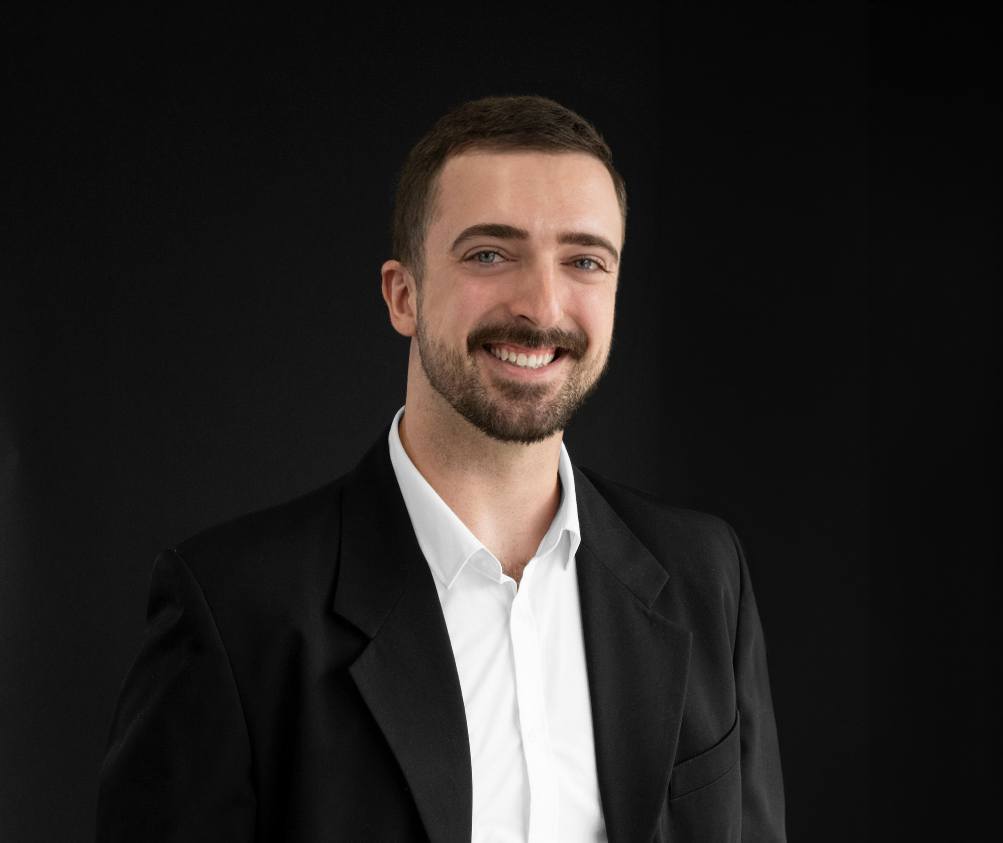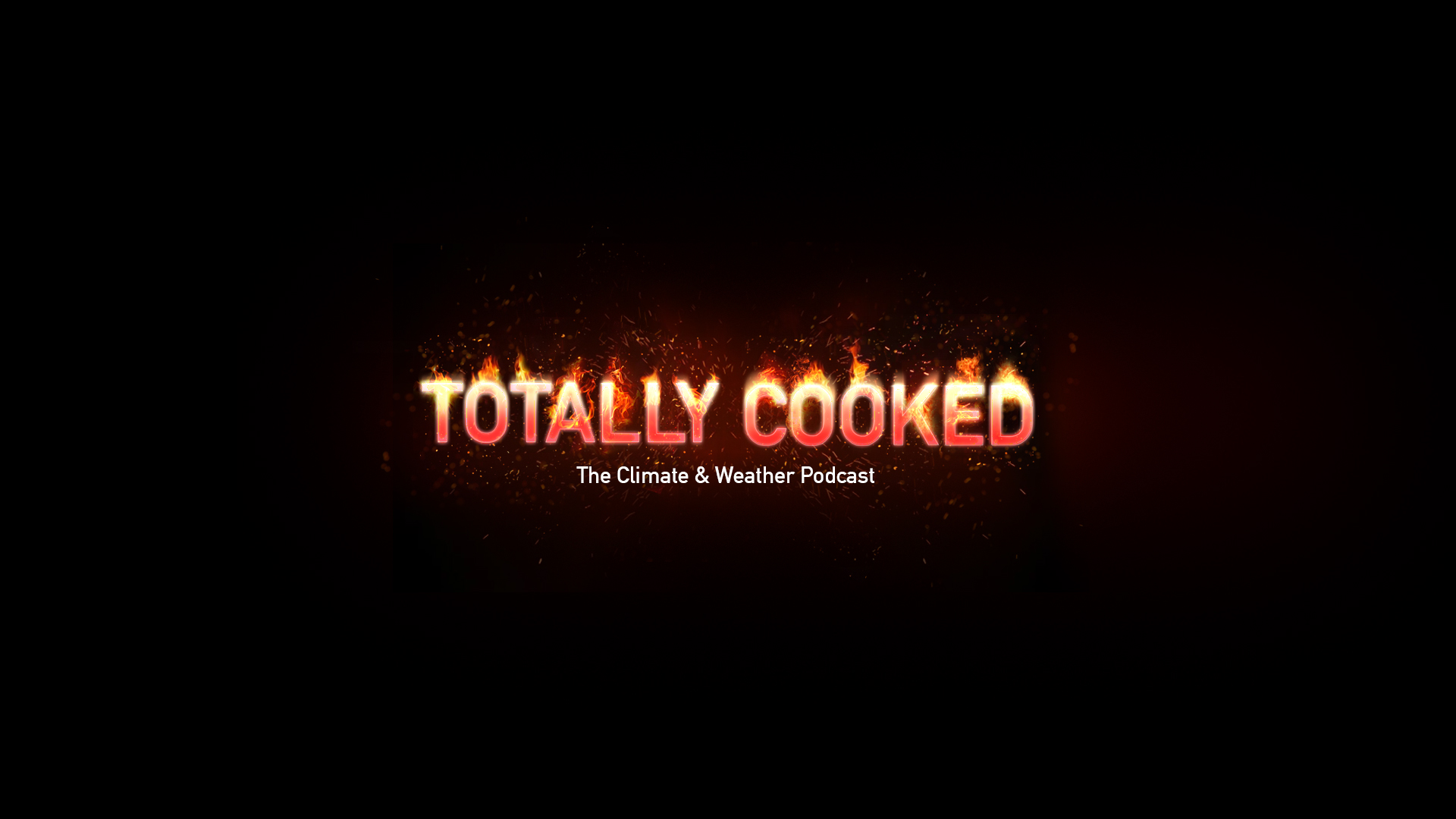
Totally Cooked: Episode 2 – How is climate change impacting our weather?
How is climate change impacting our weather? As the planet gets warmer, we’re entering uncharted territory for the climate and weather.
We’re already seeing temperature records broken regularly.
High-impact weather is affecting people everywhere, and in some places normal, day-to-day weather patterns are changing.
In this episode of Totally Cooked, we’re going to talk about things like heat, rainfall and floods.
What factors determine the weather we experience here on the ground and up in the sky? And what can we expect from our weather as carbon emissions continue to rise?
Show Notes
In this episode, we break down:
- How heatwaves are changing in Australia and around the world;
- Why extreme heat kills more Australians than any other natural hazard;
- The role of high and low-pressure systems in shaping our rainfall;
- What’s causing wetter conditions in northern Australia — and drier ones in the south;
- Why a warmer atmosphere means heavier rainfall and more flash flooding;
- How scientists are beginning to talk about “weather change,” not just climate change.
Subscribe Now
Follow the links below and subscribe to Totally Cooked via Spotify, itunes/Apple Podcasts, Amazon, iHeart Radio, Deezer, and RSS. Let’s tackle the climate crisis, together.
Listen Now
An embedded player for the episode is available here. Follow the links above to subscribe and listen to the episode on your preferred platform.
Watch on YouTube
Timestamps
00:00 – Cold Open: The Loneliest Whale
- Opening banter about a music performance on the world’s loneliest whale.
- Reflecting on loneliness, neurodiverse whales, and early bedtime routines.
01:01 – Small Talk and Theme Music
- Weather small talk segue.
- Debate over the podcast theme music: EDM, psytrance, or trip-hop?
01:30 – Clubbing Nostalgia
- Hosts reflect on their “peak clubbing era.”
- Discussion about generational perceptions of time and cultural eras.
02:22 – “Mum, You Might Die”
- Sarah’s daughter calls her too old to run races.
- Comments on age, mortality, and Hogwarts dreams.
02:50 – The Substance & Youthful Versions
- Film reference: The Substance starring Demi Moore and Margaret Qualley.
- Explores ideas of aging, youth obsession, and bodily transformation.
03:27 – Show Title Confusion & Episode Intro
- Hosts introduce themselves: Sarah (climate scientist) and Ian (science communicator).
- Brief confusion over podcast title.
- Intro to today’s topic: how climate change affects the weather.
05:16 – Programming Change: Why Weather First
- The team explains why they’re discussing weather before climate science history.
- Relevance to daily life and their Centre of Excellence’s focus.
05:45 – Let’s Talk Heat
- Discussion begins on Australia’s most defining climate issue: extreme heat.
- Sarah’s research specialty.
06:11 – The State of the Climate Report
- CSIRO and Bureau of Meteorology’s latest data.
- Australia has warmed by 1.51°C since 1910.
07:32 – Recent Record-Breaking Years
- 2019 was the warmest year on record.
- 8 of the 9 hottest years occurred since 2013.
- Every decade since 1950 has been warmer than the last.
08:56 – “My Kids Will Never Know Normal”
- Sarah reflects on how her children will never experience “average” climate.
- A generational gap in climate experience.
09:28 – Weather vs. Climate
- Hosts discuss how extreme heat events blur the line between climate and weather.
- You can’t separate the two anymore.
10:24 – What Is a Heatwave?
- Sarah defines a heatwave using Australia’s official definition.
- Three consecutive days above the 95th percentile.
11:17 – Memorable Heatwaves in Australia
- 2009’s major heatwave and its deadly consequences.
- Heatwaves in Australia are shorter than in other regions, but still dangerous.
12:11 – Why Are Heatwaves Getting Worse?
- Human-induced climate change increases baseline temperatures.
- Natural factors + global warming = more frequent and intense heatwaves.
13:55 – Net Zero Won’t Undo Heatwaves
- Initial research shows that heatwaves remain elevated even after emissions stop.
- Warming is “locked in” for decades or longer.
14:47 – Heatwaves Are Everywhere
- Relative heat extremes occur even in cool climates.
- Examples from Antarctica and the UK.
15:59 – Heatwaves: Australia’s Deadliest Natural Hazard
- More people die from heat than from fires or floods.
- The 2009 heatwave caused 374 excess deaths.
17:23 – Why Don’t We Take Heat Seriously?
- Cultural affinity for heat and reliance on air conditioning.
- Sarah champions the power of the humble fan.
18:20 – The “Silent Killer”
- Extreme heat deaths are often underreported due to misattribution.
- Most deaths occur from complications—not heat stroke.
19:46 – So What Should We Do?
- The urgent need for adaptation and mitigation.
- Heatwaves will worsen even if emissions stop.
- Calls for equitable access to cooling and medical support.
21:42 – Cooling Isn’t Just Aircon
- Not everyone can afford A/C.
- Fans, breathable fabrics, and smarter city design can help.
23:10 – Western Sydney: A Heatwave Disaster in Waiting
- Urban planning, dark roofs, and density are creating dangerous heat traps.
25:41 – Clothing, Gender, and Climate
- Skirts, dresses, and cultural norms about “acceptable” clothing.
- Climate comfort intersects with gender expression.
27:17 – Kids in Jumpers and Generational Fashion Battles
- Parental struggles to dress kids appropriately for the heat.
- Older generations’ resistance to breathable, cooler attire.
31:17 – Let’s Talk Rain
- CSIRO says southern Australia’s winter rain is declining.
- Enter: low pressure systems, cold fronts, and high-pressure ridges.
35:19 – What Is a Low Pressure System?
- Defined as an area with lower atmospheric pressure.
- Often linked to rainfall and storm activity.
36:47 – What Is a Cold Front?
- Cold air mass pushing under warm air.
- Common in southern Australia.
- Can bring rapid temperature drops and rain.
39:26 – Weather Basics: Heat Rises, Cold Sinks
- Fluid dynamics 101.
- Air behaves like water: dense things sink, warm things rise.
41:42 – Southerly Buster: Instant Relief
- Sarah recalls a 44°C day that dropped to 25°C in 30 minutes.
- A classic Sydney weather phenomenon.
43:28 – Subtropical Ridge and Dry Winters
- High pressure ridge shifts poleward, blocking cold fronts.
- Southwest and southeast Australia are drying out.
46:35 – The North Gets Wetter
- Northern Australia is experiencing wetter wet seasons.
- Triple-dip La Niñas and moisture-loaded air are key drivers.
50:32 – More Moisture = Heavier Rain
- The Clausius-Clapeyron relationship: warmer air holds 7% more moisture per °C.
- More moisture = more intense rain.
51:56 – Urban Flooding: A New Normal
- Flash flooding worsens as rainfall intensity increases.
- Built environments can’t absorb water fast enough.
53:50 – Attribution: Can We Blame Climate Change?
- It’s hard to say for any one event.
- But statistically, climate change is making heavy rainfall more likely.
56:39 – Climate Models and Rainfall Trends
- Models show more extreme rainfall as warming continues.
- But predicting exact outcomes remains complex.
58:33 – Weather Inputs Are Changing
- Even if the systems (cold fronts, monsoons) remain, their behavior and outputs change in a warmer climate.
01:00:27 – Introducing “Weather Change”
- Why the Centre is starting to talk about “weather change.”
- Climate is the long-term trend—but weather is what people feel.
01:03:17 – Why Focus on Weather Change Now?
- We’ve known about climate change for decades.
- Now we need to understand how weather systems are evolving, too.
01:05:43 – Weather Word of the Week: Southerly Buster
- A powerful cool change moving up the NSW coast.
- Windy, sudden, and capable of big temp drops.
01:07:31 – Music Festival Memories
- Field Day in Sydney, Kid Kenobi, 44°C heat, and the sudden bliss of a buster.
01:08:52 – Teaser for Next Episode
- Next time: hop in the time fridge to explore the history of climate science.
- Who figured out that fossil fuels were changing the planet?
Episode References & Further Reading
CSIRO – Australia’s Changing Climate: https://www.csiro.au/en/research/environmental-impacts/climate-change/state-of-the-climate/australias-changing-climate
Bureau of Meteorology – Low Pressure Systems: http://www.bom.gov.au/climate/glossary/low_pressure.shtml
Bureau of Meteorology – The Big Chill: What is a Cold Front?: https://media.bom.gov.au/social/blog/1001/the-big-chill-what-is-a-cold-front/
Bureau of Meteorology – The Subtropical Ridge: http://www.bom.gov.au/climate/about/?bookmark=stridge
Why listen to Totally Cooked?
Because it’s time to feel empowered, not overwhelmed. Totally Cooked is a science-backed, straight-talking podcast about weather, climate change, and what it all means for life on Earth – especially here in Australia.
Hosted by climate scientist Sarah Perkins-Kirkpatrick and science communicator Iain Strachan, Totally Cooked breaks down how human activity is changing the Earth’s systems—from our skies to our seas—and what we can do about it.
From greenhouse gases to fire weather, supercomputers to Antarctic ice cores, this is climate science without the jargon, and where no subject is too complex or controversial.
Totally Cooked is for anyone who wants to understand the science of climate change—without needing a PhD. Whether you’re a high school student, policy maker, journalist, teacher, concerned citizen or just a little climate-curious, this podcast will give you the tools to think clearly and act confidently.
- Cut through the noise with clear, honest science.
- Understand the why behind climate change;
- Learn how climate change impacts real-world weather;
- Hear from the best researchers and scientists in their field and from around the world;
Stay in touch
We want to build a community of climate and weather nerds.
If can’t get enough of Totally Cooked, join our mailing list to receive episode alerts, show notes, information about our guests and behind the scenes content.
You can also suggest a guest or topic by emailing totallycooked@21centuryweather.org.au.
Meet the team
Sarah Perkins-Kirkpatrick
CO-HOST
A Professor of Climate Science at the Australian National University, Sarah is an expert on extreme heat and a leading voice in Australian climate research and science communication.
Iain Strachan
CO-HOST / PRODUCER
Iain is a former journalist turned science communicator with a passion for telling big, complicated stories in clear, human ways.
